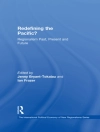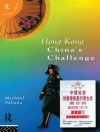The end of the Cold War has changed the shape of organized violence in the world and the ways in which governments and others try to set its limits. Even the concept of international conflict is broadening to include ethnic conflicts and other kinds of violence within national borders that may affect international peace and security. What is not yet clear is whether or how these changes alter the way actors on the world scene should deal with conflict: Do the old methods still work? Are there new tools that could work better? How do old and new methods relate to each other?International Conflict Resolution After the Cold War critically examines evidence on the effectiveness of a dozen approaches to managing or resolving conflict in the world to develop insights for conflict resolution practitioners. It considers recent applications of familiar conflict management strategies, such as the use of threats of force, economic sanctions, and negotiation. It presents the first systematic assessments of the usefulness of some less familiar approaches to conflict resolution, including truth commissions, "engineered" electoral systems, autonomy arrangements, and regional organizations. It also opens up analysis of emerging issues, such as the dilemmas facing humanitarian organizations in complex emergencies. This book offers numerous practical insights and raises key questions for research on conflict resolution in a transforming world system.
Commission on Behavioral and Social Sciences and Education & Committee on International Conflict Resolution
International Conflict Resolution After the Cold War [EPUB ebook]
International Conflict Resolution After the Cold War [EPUB ebook]
购买此电子书可免费获赠一本!
语言 英语 ● 格式 EPUB ● 网页 640 ● ISBN 9780309171731 ● 编辑 Daniel Druckman & Paul C. Stern ● 出版者 National Academies Press ● 发布时间 2000 ● 下载 3 时 ● 货币 EUR ● ID 7142362 ● 复制保护 Adobe DRM
需要具备DRM功能的电子书阅读器












